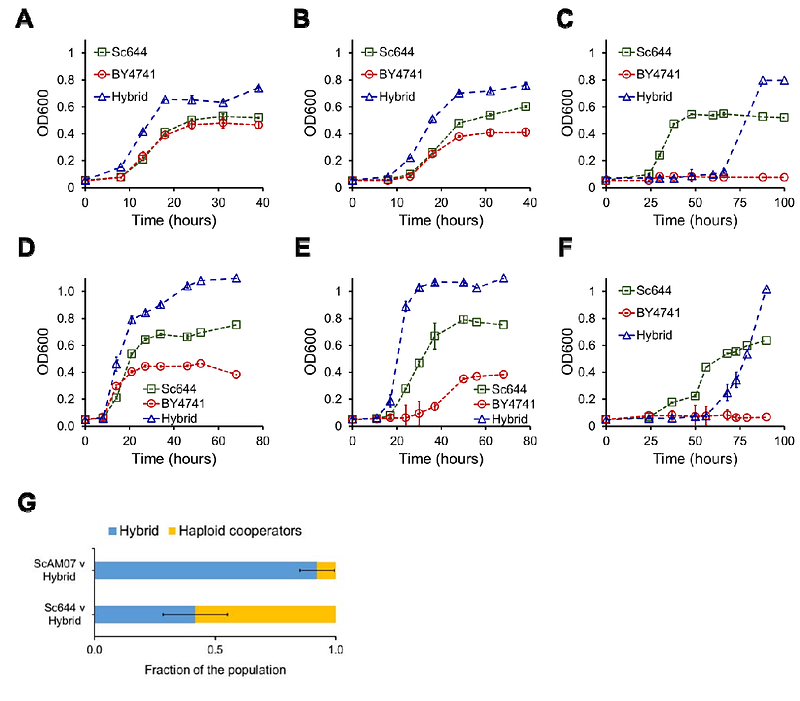Facultative Cheating and Hybrid Vigor Resolves Cooperator-Cheater Conflict in a Yeast Public Goods System.

Facultative Cheating and Hybrid Vigor Resolves Cooperator-Cheater Conflict in a Yeast Public Goods System.
Raj, N.; Saini, S.
AbstractThe persistence of cooperation in the face of cheating is a central paradox in evolutionary biology. Microbial public goods systems employ diverse solutions to this dilemma, yet most studies assume fixed strategies wherein genotypes function strictly as cooperators or cheaters. Here, using the GAL/MEL regulon of Saccharomyces cerevisiae, we uncover a dynamic resolution to this conflict through facultative strategy switching. When haploid cheater-cooperator strains were co-evolved in melibiose, we observed the repeated emergence of same-mating-type diploid hybrids. These hybrids arise early in evolution and ultimately spread in the population. The hybrids exploit the public good produced by cooperator strains when present, acting as facultative cheaters. However, following cooperator extinction, hybrids switch to a cooperative phenotype. This dynamic role transition enables the hybrid to persist across shifting ecological contexts. Our findings reveal a novel, context-dependent mechanism of cooperation maintenance, whereby facultative cheating and genotype plasticity resolve the tension between individual fitness and collective benefit. This work expands the conceptual framework of social evolution by demonstrating that phenotypic flexibility, facilitated through hybridization, can stabilize cooperation even in fully exploitable public goods systems.